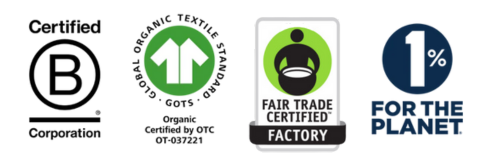This blog is a part of our Ultimate Guide to Baby-Led Weaning. Check it out for more information!
Baby-led weaning is a popular approach to introducing solid foods to babies, allowing them to take the lead in exploring and feeding themselves. However, when it comes to babies with a higher risk of developing allergies, such as those with severe eczema or a family history of allergies, parents may have concerns about using this method. In this blog, we will address the topic of baby-led weaning in relation to allergies and provide some guidance on how to introduce solid foods to your baby for allergy prevention.
Common Allergens to Introduce to Baby
When it comes to allergy prevention, it is recommended to introduce common allergy-causing foods by 12 months of age, even for babies following a baby-led weaning approach. These foods include:
- Egg
- Peanuts
- cow's milk (dairy)
- tree nuts
- Soy
- Sesame
- Wheat
- Fish
- Other Seafood
The introduction of these foods should be done in an age-appropriate form, such as well-cooked egg and smooth peanut butter or paste, avoiding whole nuts or nut pieces to prevent choking hazards.
How to Introduce Allergenic Foods
To introduce allergenic foods during baby-led weaning, start with small amounts of well-cooked egg or smooth peanut butter/paste. You can mix a small amount (¼ teaspoon) into your baby's usual food, gradually increasing the amount if there are no allergic reactions. Avoid rubbing or smearing food on your baby's skin. This does not help identify possible food allergies but may increase the risk of developing an allergy to that food.
Signs of Allergic Reactions
It is important to be aware of the signs of allergic reactions when introducing allergenic foods, regardless of the feeding method. If you notice any swelling of your child's lips, eyes, or face, or any hives or welts, vomiting, or any significant change in your baby's behavior soon after giving a new food, it could indicate an allergic reaction. Stop feeding your baby that food and call your baby's doctor for advice. In severe cases, such as difficulty breathing or tongue swelling, call emergency services immediately.
Continued Exposure
Unless your baby has an allergic reaction to a particular food, it is important to continue giving that food regularly (twice weekly) as part of a varied diet. Studies have shown that trying a food and then not giving it regularly may increase the risk of developing a food allergy.
Baby-Led Weaning Can Help Reduce Risk of Developing Food Allergies
Baby-led weaning can be a suitable approach for introducing solid foods to babies, even for those at a higher risk of developing allergies. Remember to be vigilant for signs of allergic reactions and seek medical advice if necessary. By gradually introducing allergenic foods and continuing regular exposure, you can help reduce the risk of developing food allergies in your baby.
How Tabeeze Can Help During Baby-Led Weaning
Let Tabeeze make your baby-led weaning journey easier. Our baby onesies feature convenient shoulder snaps that help minimize the mess during baby-led weaning.
With a quick snap, Tabeeze allows you to place the bib right onto your child's bare chest during mealtimes, keeping the outfit clean and away from the mess of baby-led weaning as your little one explores and plays with the food as they explore new tastes and textures. Tabeeze adds convenience to your baby-led weaning adventure, ensuring a more enjoyable experience for you and your little one. Say farewell to stained tops and numerous outfit changes due to meal time, and embrace the convenience of Tabeeze during your baby-led weaning journey.
Disclaimer: The information provided in this blog post is for educational purposes only and should not replace medical advice. If you have specific concerns or questions about introducing solid foods to your baby, consult a healthcare professional or a registered dietitian.






